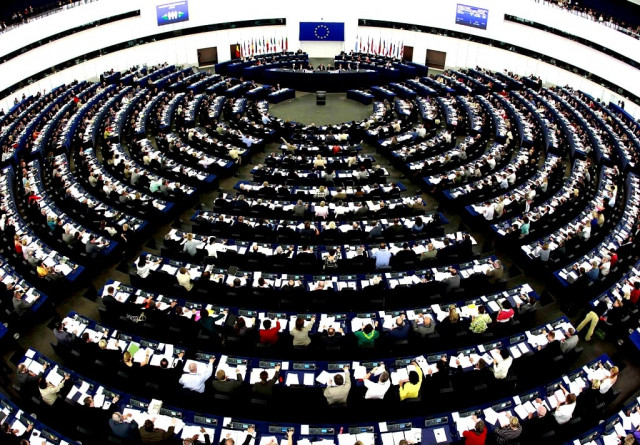Helping Pakistan: EU approves duty-free access package, with strings
Critics say it’s too little, too late; supporters say it might be a foot in the door.

In a symbolic and diplomatic victory for Pakistan and the European Union, the European Parliament approved limited duty-free access for Pakistani goods but added stringent measures that will allow the 27-nation bloc to withdraw the concessions, before the stipulated expiry period of end-2013.
Critics, however, say the concessions may be too little, and too late.
Winding approval
The EU Parliament approved the package two years after the original proposal – helping the economy recovery from the 2010 floods – was floated.
In 2010, the EU had proposed allowing duty free access to 75 products for a period of three years.
However, as the package passed through several layers of approval, including in the World Trade Organisation, its implementation time has reduced to less than 14 months, compared to the original 36, and most of the 75 items have been linked to quotas, instead of duty-free access.
The 2010 floods caused over $10.6 billion in losses, and inundated one-fifth of the country. EU’s trade concessions package had originally envisaged benefits of over €300 million over a period of three years.
Foot in the door
The compromised shape of the package carries little financial benefits but may prove to be the proverbial foot in the door for Pakistan.
EU officials say Pakistan can use the limited access as a bridge to get the Generalised System of Preferences (GPS) Plus status, effective from 2014.
However, seeking access to GSP Plus status, that will ensure duty-free access for all Pakistani products, will require implementing human rights conventions, signed by Pakistan at various international forums.
Honouring commitment
For EU’s Ambassador to Pakistan Lars Gunnar Wigemark, the duty-free deal had become a matter of honouring the EU’s commitments after the bloc’s nations were affected by the Euro debt crisis.
The EU parliament approved the deal with 342 votes in favour, and 97 against, while 165 members abstained from voting. Some of the members abstained on grounds that EU trade policy should not be used as a humanitarian aid tool, according to the EU parliament.
The waiver will be effective till the end of 2013, and includes fabrics, garments, linen, ethanol and leather. It will be applicable from the date the measure is published in the EU Official Journal.
Safeguards and strings
The EU Parliament inserted safeguard clauses to protect local industry and jobs in the textiles, garments, ethanol and leather sectors, which are sensitive for some member states, against surges in cheap imports.
According to the safeguard clauses, the EU Commission may reintroduce duties if EU imports of the products concerned grow by 25% or more.
The parliament also inserted amendments to enable the EU to withdraw the trade preferences if Pakistan imposed restrictions on exports of raw materials from EU, used to produce the 75 listed goods. The EU Parliament has specifically mentioned the export of animal hide to Pakistan.
The parliament also inserted a statement that the measure was strictly a response to the specific situation in Pakistan and should not constitute a precedent for the union’s trade policy.
The concessions have also been tied to Pakistan’s human rights records.
The package will immediately be suspended, “if Pakistan adopts measures restricting human rights and workers’ rights, gender equality or religious rights or if it provides terrorist organisations of any kind with backing or support.”
Published in The Express Tribune, September 15th, 2012.












1724319076-0/Untitled-design-(5)1724319076-0-208x130.webp)






COMMENTS
Comments are moderated and generally will be posted if they are on-topic and not abusive.
For more information, please see our Comments FAQ